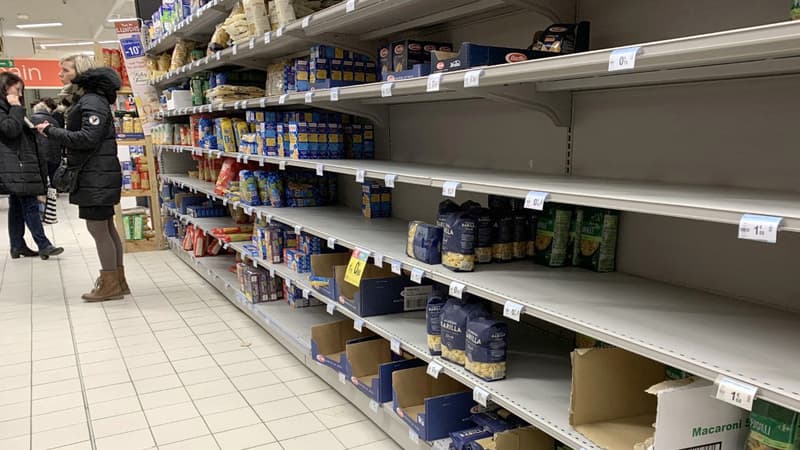Shortage! This word has become common for consumers who see products disappearing from the shelves. Every month a new one is added to the list with different reasons (pandemic, war in Ukraine, drought, transport…) to see stock shortages and alarming price increases.
Nothing is saved: from toilet paper to crackers, mustard, cheese, butter, potatoes and of course energy such as electricity, gas and even wood pellets. Even some medications have been affected by this phenomenon.
Some explanations about these disturbing phenomena that confuse consumers and do not make the supermarket business.
• The end of abundance?
The images become familiar: empty supermarket shelves, missing products, even disputes over the last packet of flour or the last bottle of oil. In the newspaper Le Parisien, a representative of Système U recently assured that “it had never experienced interruptions in supply at such a high level”.
There is sunflower oil, since the invasion of Ukraine, an important producer of this plant, by Russia. Or toilet paper at the beginning of the Covid-19 epidemic in 2020. Since the beginning of the conflict in Ukraine, from the beginning of March to mid-August, it has been mustard, salad dressing, soft drinks, chips, oils or poultry. that have been affected, according to a barometer established by panelist NielsenIQ.
The truth is that 96.4% of the references were still available on the shelves in August, according to this same source. But the rate of ruptures, which last an average of 4 days, is abnormally high in a country accustomed to not missing anything.
• How are these ruptures explained?
Until the Covid-19 epidemic, store sourcing was a well-oiled machine. Before placing an order, the merchants were based on the sales of the same period of previous years, taking into account specific events such as the end of the year celebrations or the arrival of sunny days.
But since 2020, between lockdowns, telecommuting and the impact of the war in Ukraine, the forecasts are much less precise. All players agree that it is above all the so-called “precautionary” purchases that empty the shelves: customers, hearing that the mustard crops have been poor, or seeing that the shelves are already very empty, will be tempted to buy more. these products than usual, to keep them at home.
This desire escapes the forecasting models of companies, which will want to place an order at the same time, obstructing the supply chain. Also, suppliers may be tempted to charge more, as available stock is hotly contested.
• Are traders interested?
If sunflower oil has returned to stores, it is often at higher prices, suggesting that supermarkets are profiting from the crisis. Professionals respond that these inputs cost them, as well as packaging and transportation. But since demand is high, some may have been tempted by higher prices.
In any case, retailers do not like to leave shelves empty, which they see as lost profits, estimated by NielsenIQ at 2.7 billion euros since the beginning of the year. A figure to clarify, however, because it does not take into account the “oversales” made when the product is available on the shelves.
• Voluntary terminations?
However, certain advances are chosen by professionals, whether they are agribusinesses or distributors. Fans of Mikado, Petit Ecolier, Pépito or Pim’s have recently noticed that some of their products were missing from the shelves. This is the consequence of the decision of the group that owns these brands, Mondelez, to “deeply clean” a production center, after a salmonella alert in a Belgian factory of one of its chocolate suppliers, and after ensuring that no offered no products for sale. Contains contaminated chocolate.
Another scenario: the waters of the Danone group, including Evian, Badoit, Volvic. In many Intermarché stores they are no longer sold. There was no interruption of production, but a disagreement between the manufacturer and the dealer on the purchase cost.
Source: BFM TV


